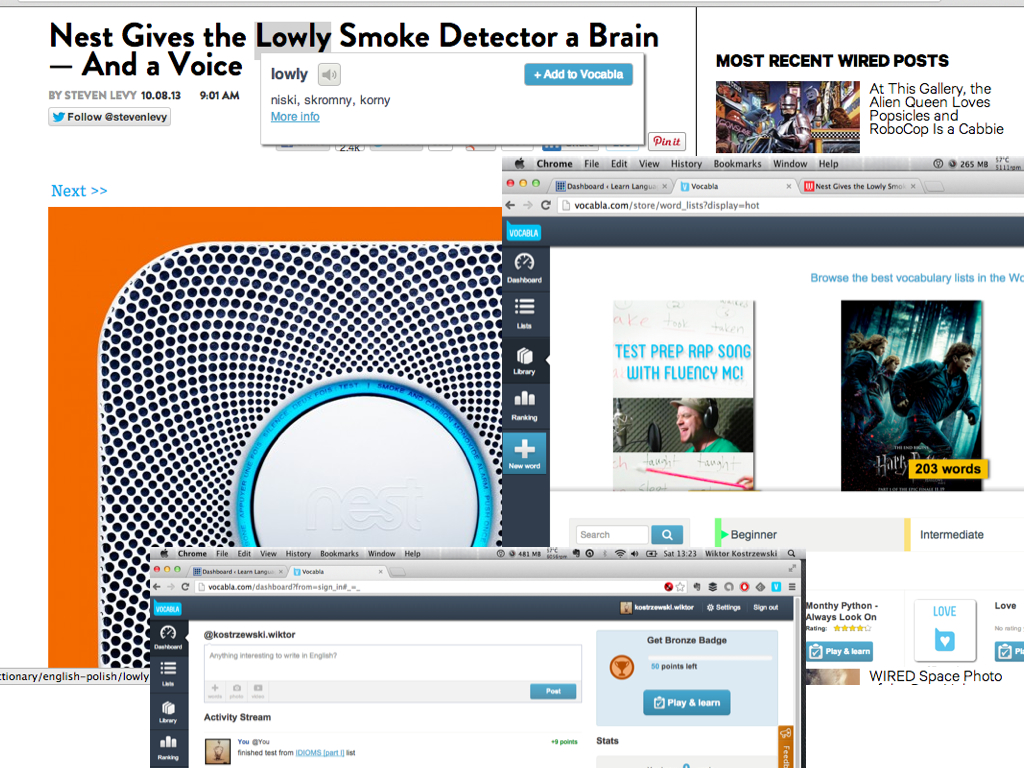
November is National Novel Writing Month. This is when your best writing ideas can all come together to form a great novel! Or, failing that, you’ll have a good few thousand words that can be transformed into anything you wish. There are plenty of events, meetups and motivating folks taking part. So why has it taken me so long to take part in it?
1. The power of a short story
More than anything, I enjoy reading four or five pages of prose that deliver a powerful impact without the length and weight of a novel. And when writing, this is an effect worth imitating. There isn’t enough time to write down bigger narratives – there’s little time to read them if someone wrote them down.
Short stories are sharp punches aimed at one point. They’re memorable in its entirety, and still spacious enough to contain lots of good writing.
2. The resistance
“I’m not really a writer.”
“Well, I do write something. But I’m definitely not a novelist.”
“I haven’t really got a serious commitment here. It wouldn’t work anyway.”
This is what I’ve been telling myself. And all this time, I’ve actually been writing stuff. Often short stories – experiments, sketches, one-off ideas turned into a narrative. But sometimes they would be linked up – even if I didn’t see it at first.
Short stories have their merits, but for a fearful writer, they can also be a perfect excuse. Look, I could say, I’m doing something. I’m trying. And even if it wasn’t going anywhere – even if it only required a one-hour commitment – I would still be satisfied that I did something.
3. The Stakes
NaNoWriMo rewards you for word count. It has gadgets that show if you’re making progress. It had word wars between users or regions.
Sounds brutal? For me, this could be the only way to make sure I actually write something bigger.
It’s a crude example of the “Stakes” stage of learning to master a new skill. What’s more, the online word count translates to a huge volume of work – something I can actually use for whatever I’ll dream up later.
4. The Dots
Fifty thousand words does not a novel make. And I’m not completely sure I want one, to be honest.
This is what I’ll be writing – but if I later break it up into three novellas, scrap it to salvage one brilliant story, or turn it into a whole new idea – who knows? The writing cannot be planned out from A to Z – that’s the difference between creative and technical writing, I guess. So whatever we’ll be working on may change form, shape and intent.
Which is OK, but won’t happen without the material. Without the words, all you have is an ambition and some intentions. They’re cute, but unworkable.
5. What you can do
Sign up for your NaNoWriMo today.
Wiktor (Vic) Kostrzewski (MA, DELTA) is an author, translator, editor and project manage based in London. When he works, he thinks about languages, education, books, EdTech and teachers. When he doesn’t work, he probably trains for his next triathlon or drinks his next coffee.
BRAVE Learning (formerly known as 16 Kinds) is a lifelong learning and productivity blog. If you enjoy these posts, please check out one of my books and courses.
My recent publications, and my archive, is now all available on my new project: PUNK LEARNING. Hope to see you there!











